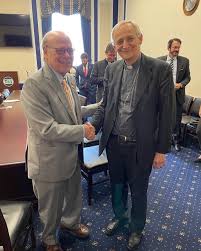
Introduction
Matteo Zuppi, the current Archbishop of Bologna, has rapidly become a significant figure in Italian politics and social discourse. His commitment to advocacy for peace, social justice, and his role in the handling of complex issues like immigration and poverty make him a voice to watch in contemporary Italy. As the country navigates a challenging political climate, Zuppi’s insights and actions can potentially shape future policies and public sentiment.
Background and Rise to Prominence
Matteo Zuppi was born on October 11, 1955, in Rome. He was ordained a priest in 1981 and later became the Bishop of the Diocese of the Roman Catholic Church in the region of Bologna. His rise to prominence as a religious leader intertwined with his commitment to social issues allowing him to garner respect across diverse segments of society.
In recent months, Zuppi was appointed by the Italian government to mediate peace efforts in the ongoing conflict in Ukraine, underlining his reputation as a man of dialogue and resolution. This role has emphasized not only his diplomatic skills but also his dedication to global peace.
Key Initiatives and Contributions
Archbishop Zuppi is known for addressing urgent social concerns in Italy, particularly relating to poverty and migration. He has been vocal about the need for a more inclusive society that welcomes diverse cultures and backgrounds. His outreach efforts include establishing food banks and supporting vulnerable communities.
Moreover, his focus on education and youth empowerment initiatives is gaining momentum. He has engaged with local organizations to provide opportunities for underprivileged youth in Bologna and beyond, offering workshops and mentorship programs.
Impact on Italian Politics
As political tensions in Italy have escalated, particularly around immigration and economic reform, Zuppi’s voice has continued to resonate with citizens who seek compassionate solutions rather than divisive rhetoric. His recent speeches at public forums have emphasized reconciliation and cooperation among different political factions, showcasing his capability to unify rather than polarize.
Conclusion
Matteo Zuppi’s emerging influence in Italian politics signifies a shift towards more humane policies and social justice narratives in political discourse. His role in mediating peace efforts and advocating for marginalized communities places him at the forefront of contemporary issues. As Italy faces challenges in governance and societal integration, the insights and actions of figures like Zuppi may become more critical in shaping a just, inclusive, and peaceful Italy. As we move forward, the relevance of Matteo Zuppi’s contributions will likely continue to grow, prompting citizens and politicians alike to consider the importance of compassion in governance.






